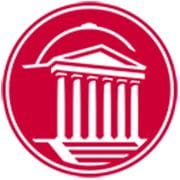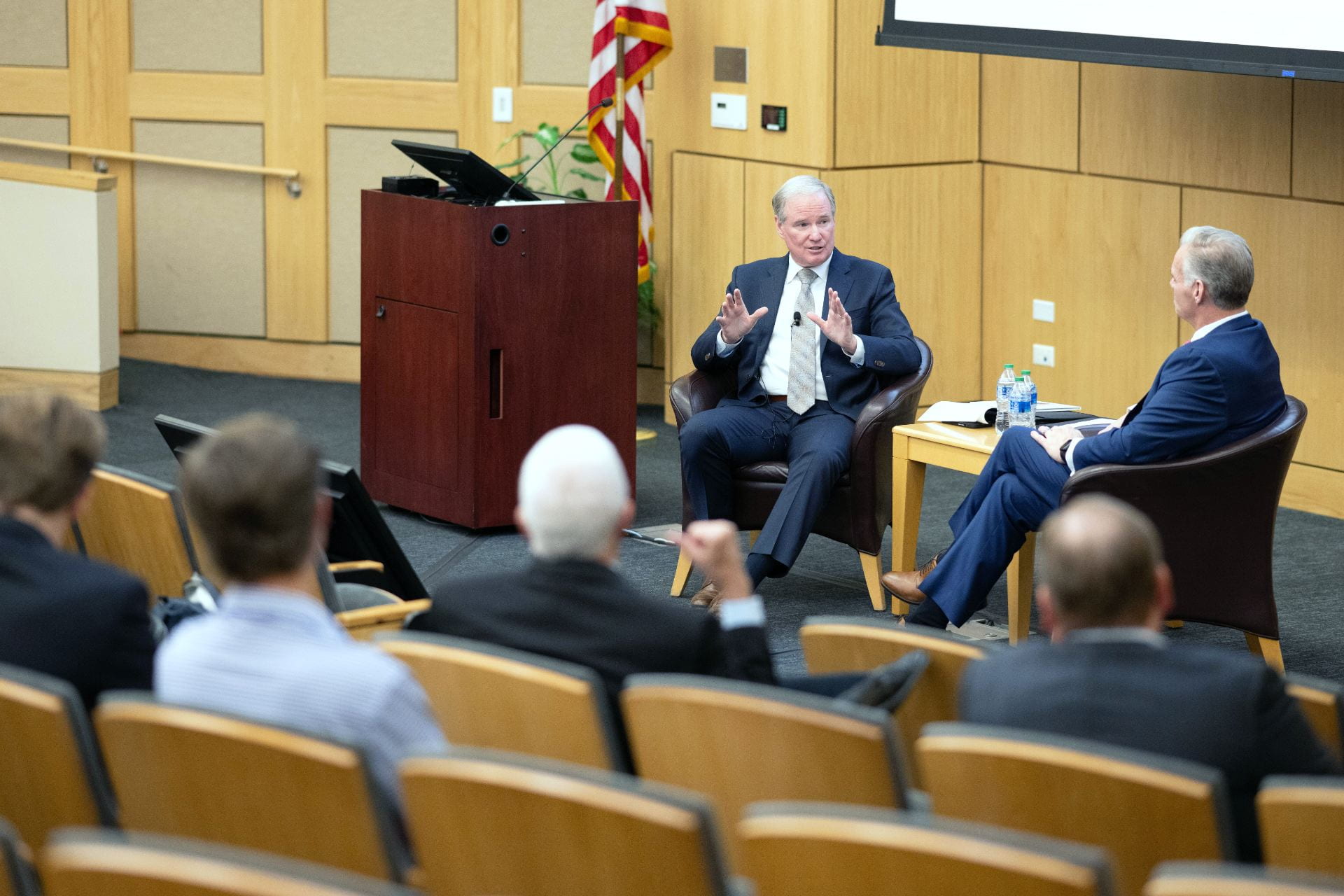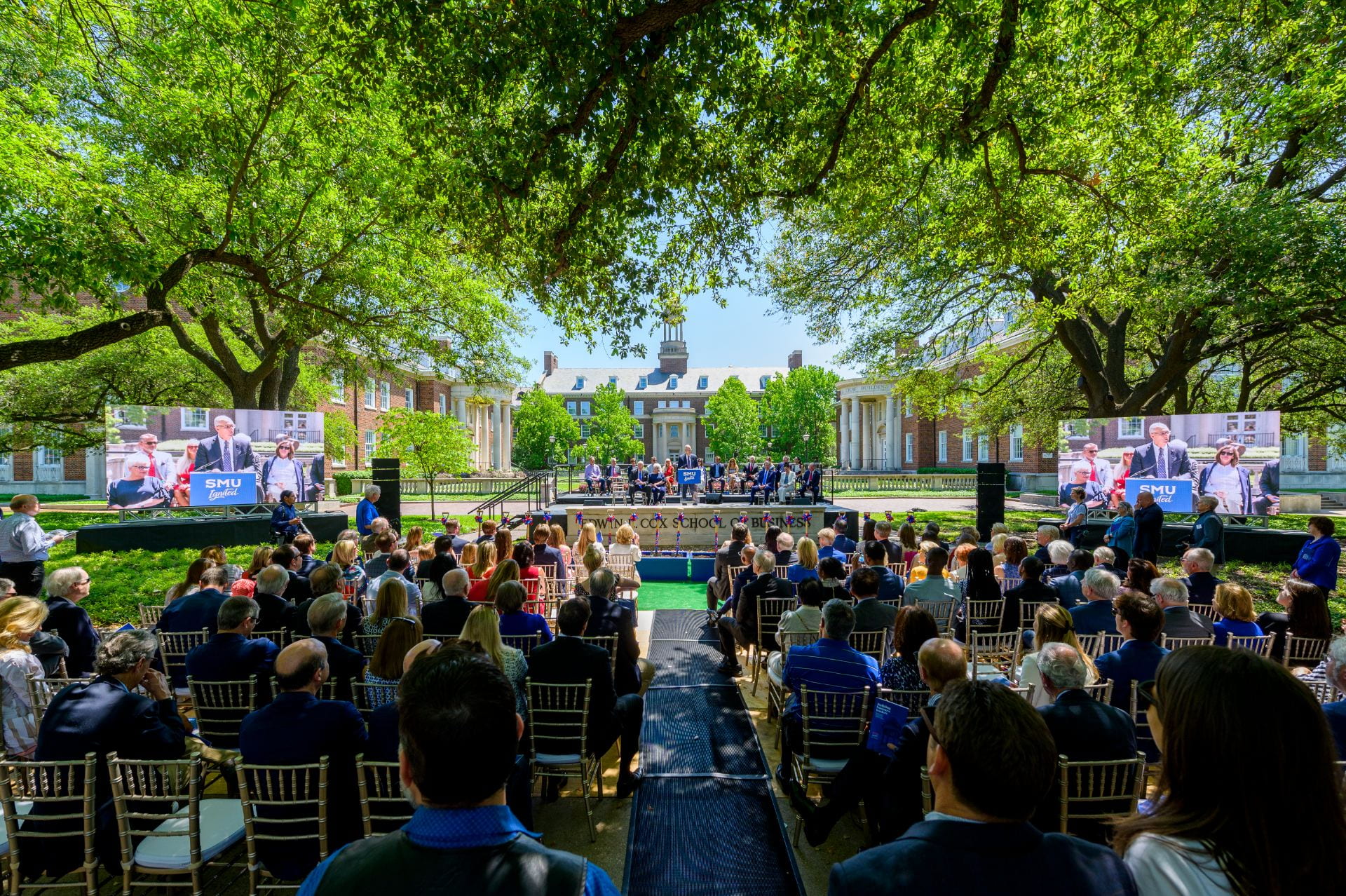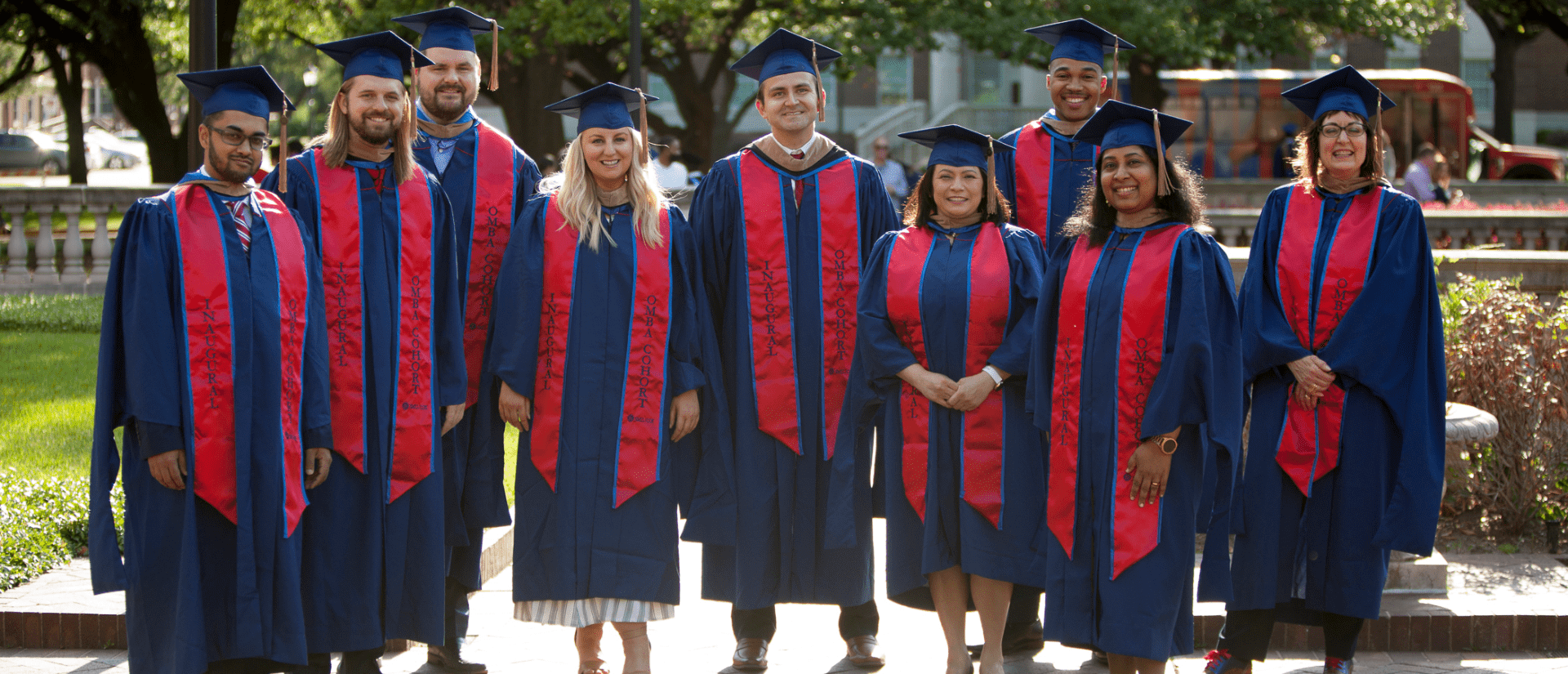Answering the Demand for Leadership in a Data-Rich World
First published in 2016 by Klaus Schwab, founder and executive chairman of the World Economic Forum, The Fourth Industrial Revolution has triggered both anticipation and trepidation within the business community. Schwab postulated that this next Revolution would be set apart exponentially from its predecessor, the Digital Revolution, by its sheer velocity and scope. Accordingly, SMU Cox and other forward-thinking business schools are heeding the call to prepare graduates for leadership in today’s dynamic, data-driven marketplace.
Since its debut at the 2016 World Economic Forum annual meeting forum in Davos, Switzerland, the Fourth Industrial Revolution has inspired business leaders to revolutionize business practices in order to prepare, adapt and capitalize on the pending onslaught of data. And now that billions of people are connected via mobile devices and have unlimited processing power, storage capacity and access to information, Schwab believes “the fusion of technologies is blurring the lines between the physical, digital, and biological spheres, collectively referred to as cyber-physical systems.”
While society reaps the benefit of faster, more expansive and customized data, we see the precarious balance of the “cyber-physical system” in the stories of digital dissonance and data distortion. We have witnessed email hacking at the highest levels of government, market flash crashes, unprecedented personal data breaches and computer program “glitches” that brought airlines to a screeching halt – grounding thousands of aircraft and stranding tens of thousands of passengers across the country. We’ve even seen the manipulation of social media data in an attempt to influence a national election. In the Fourth Industrial Revolution, we will have to depend on the human interface to not only realize the power of the cyber-physical system but also to dampen the “glitches.” For the disruptions are more than an inconvenience; they sow anxiety because they illustrate the dependence we have on something that is largely unseen and underappreciated – data, data and more data.
“Whereas previous industrial revolutions had twenty years between major technological advancements, we may now we have only two. In other words, the difference between a freshman and a senior can be two technological generations of understanding how to work .” – SMU Cox Dean Myers
Higher education has taken on the challenge of ensuring that the next generation of business professionals is aptly prepared to harness and maximize the advantages borne of this industrial revolution and its infinite possibilities. Moreover, at the SMU Cox School of Business, it’s compulsory. For Matthew B. Myers, the School’s dean, it’s time to act; and act now. He notes, “Whereas previous industrial revolutions had 20 years between major technological advancements, we may now we have only two. In other words, the difference between a freshman and a senior can be two technological generations of understanding how to work.” Therefore, we must equip students with a breadth of skills for a future yet to be defined.
The Age of Digital Disruption
Just ten years ago, Amazon was known as an online book seller. We “hailed” taxis when we needed a ride, and we were in awe that our entire music library could be held on the latest “generation” of iPod. Today, data is ubiquitous, and we expect instantaneous results tailored to our personal whims. With all of the new technology and its consequent effect of digital disruption on practically every part of our lives, we risk making catastrophic business decisions if we don’t know how to translate data into “intelligence.” At the 2016 World Economic Forum (WEF), Pierre Nanterme, CEO of Accenture, said the effects of digital disruption present “the most significant threats and opportunities any of us have faced in business.” Of course, within this threat lies immense opportunity for workers who can analyze and leverage data to make smarter decisions.

The WEF predicts that by 2022, 75 million jobs may be displaced, but 133 million new jobs may emerge. Certainly, we can expect to see a shift in the division of labor between humans and machines. The WEF’s Future of Jobs Report 2018, states that 71 percent of task hours are covered by humans and 29 percent by machines. In 2022, this is expected to change to 58 percent and 42 percent respectively. Nevertheless, people still need to run the machines. And this is where human skills such as analytical thinking, creativity, innovation and emotional intelligence come into play.
New Skills are Needed, Now
While we may lose jobs in manufacturing, production, and office administration, we will gain them back in management, computer analytics, operations and engineering. Furthermore, enhanced social skills are called for in the new era. Talent in team-building, creativity, sales and leadership will be critical to successful management of the data-centric workplace.
This combination of technological and social skills is in hot demand. In fact, only half of chief human resource officers surveyed are confident in their organization’s ability to meet this new workforce demand. In addition to finding new recruits with coveted skillsets, their existing personnel must also rise to the challenge if they wish to remain relevant and employable. According to the WEF’s job report, current employees will require, on average, 101 days of training and “reskilling” by 2020 in order to meet the gap. Companies like AT&T are looking to education and training in order to keep their talent pool competitive. AT&T recently told 100,000 of its workers that their jobs would not be relevant in 10 years. Accordingly, the company created a Workforce 2020 initiative and invested $1 billion or $10,000 per employee to upskill their workforce; of course, the alternative is far costlier. The median cost of replacing a worker is 21 percent of the employee’s salary, according to the Center For American Progress.
Business schools like SMU Cox are updating, if not overhauling, executive education to meet the growing needs of the workforce. The jobs of today’s business school graduates will be very different in 10 years. Generation Z (those born between 1995 and 2010) faces an even greater challenge, says Dan Schwabel of The New York Times. Sixty-five percent of the jobs they will fill don’t even exist yet.
“It’s important for companies to engage and retrain workers rather than constantly going to the street to hire.” – Bill Blase, Senior EVP of HR, AT&T
With this furiously fast evolution in technology and superhuman intelligence capacity, business leaders need high-tech acumen, as well as moral governance. We’ve already seen how technological disruptions can have catastrophic effects on everything from our travel and spending to our privacy. In this era of massive data automation, a human touch is needed more than ever if we’re to channel this information for the good of our workforce and not its demise. With the proliferation of data-driven decisions, ethically motivated managers must oversee the onslaught of artificial intelligence because it is, after all, artificial. Access to so much consumer data can be precarious and the ethical boundaries of its use continue to be debated in the public as well as in recent senate hearings.
SMU Cox: Three Strategic Pillars
To meet the needs of the Fourth Industrial Revolution, Cox is teaching students to thrive in this new complex era of data, innovation and collaboration. Shane Goodwin, associate dean of graduate and executive education programs, shares the new focal points: leadership, analytics and experiential learning. “We launched a curriculum review in Spring 2018 to focus on experiential learning to develop well-rounded business leaders who are innovative, entrepreneurial, analytically skilled and who know how to leverage technology in a global setting to solve complex business issues,” Goodwin says.
Leadership: A Human Touch in
a Data-Centric Workplace
For all of the technology available at our fingertips, we must educate and employ principled leaders. Data is two-dimensional. The intersection of knowledge and ethical application is where true human value lies. Further, the new workplace is so interconnected with open knowledge sharing, the ability to thrive in a team environment is paramount.
To be prepared, SMU Cox is heeding calls from employers demanding technological expertise combined with leadership strength and social acumen. “We’re listening to the companies,” says Dean Myers. “They’re proactive in their requests. As organizations flatten out, the importance of leadership becomes more critical. Business schools increasingly need the skills of the Humanities.”

At the graduate level, the Edwin L. Cox Business Leadership Center (BLC) offers more than 80 optional learning seminars to help hone highly sought-after proficiencies. BLC director Paula Strasser explains, “The BLC offers MBA students a unique advantage in developing applied leadership skills with real-world application.” Industry experts teach the seminars and integrate customized content via case studies, simulations and coaching. Students can attend programs on communication skills, customer innovation, interpersonal relations, personal development, as well as servant, productive and managerial leadership. “Ninety-three pecent of the full-time MBA students actively participate,” says Strasser.
As for undergraduates, SMU Cox BBA students take more than half of their curriculum outside the business school. A thoughtful mix of liberal arts and sciences creates balanced leaders with valuable left-brain-right-brain skills. Within the business school, an integral part of the BBA curriculum is the Cox Business Leadership Institute (BLI), where undergraduate students complete a semester-long course in business communication and leadership development. Class topics focus on valuable “soft skills” like presenting, business writing, leadership development, ethics, career management and how to work effectively in teams.
Analytics: Using Data for Meaningful Application of Knowledge
With the onslaught of data comes the risk of analysis paralysis. As Rob Casper, chief data officer at JPMorgan Chase told McKinsey & Co., “If you simply rely on having huge quantities of data in a data lake, you’re kidding yourself. Volume is not a viable data strategy.” He says the most important objective is to find and stay true to the business problems at hand. Then, dedicate data management efforts towards solving those challenges.
SMU Cox has incorporated data analytics throughout the business school curriculum. The School began offering MBA students a concentration in business analytics in 2011. In 2014, Cox introduced the Master of Science in Business Analytics (MSBA) program. The program is in high demand, with each class size bigger than the last. Hettie Tabor, former global director of SAP Business Analytics at Accenture and now director of the Cox School’s MSBA program, explains, “This program is dedicated to preparing our students for jobs in analytics, business intelligence, data science and big data. We teach students the business, statistical and information technology (IT) sides of analytics.” The program brings real-world problems from the boardroom into the classroom. “We work with companies that give us data and a business challenge. Our students use this data to develop queries and dashboards for the companies and draw insights from their data,” says Tabor. Students then present their findings and recommendations to the companies at the end of the program.
Another critical, yet less common, class in analytics is called “Managing Your Career.” “In addition to discussions about resumes and interviews, we bring in representatives from different companies to meet the students each week,” says Tabor. Students research the companies and make presentations to the representatives. The companies explain their businesses, what they do in analytics and what they look for in qualified candidates. As a result of their extensive preparation, MSBA placement is high, with 92 percent of the MSBA students placed in their job of choice within 60 days of graduation.
“Aging populations, increased job switching and the accelerating pace of change in business suggest that education will be increasingly important throughout one’s career lifecycle.” – Associate Dean Shane Goodwin
SMU Cox also offers non-degree programs such as Digital Strategy and the Graduate Business Analytics Certificate Program (GBACP) to further help shape an effective workforce for the digital economy.
Associate Dean Goodwin confirms the need for thinking beyond data alone. “Future business leaders will be able to identify a problem, apply data analytics, then implement a plan to solve a business challenge.” This requires leadership skills and the ability to manage teams effectively. “A lot of people know how to manage data but can’t communicate what it means.” With kids learning to code in second grade, he says, “at 20 years old, they’ll have digital skills but they won’t know how to solve problems.” Hence, experiential learning is the third crucial strategic pillar of the Cox business school program.
Experiential Learning: From Classroom to Boardroom
Experiential learning is the make-or-break intersection between academia and practice. Explains Goodwin, “Aging populations, increased job switching and the accelerating pace of change in business suggest that education will be increasingly important throughout one’s career lifecycle.” He suggests that today’s professionals take ownership of their training as this generation may be employed for 60 years or more. “Your job will not be remotely the same. The job you have at 20 will be gone by the time you’re 60.” And while the temptation to focus on technical skills is evident, Goodwin says “Don’t chase the technology firefly. Technologies will change or burnout. It’s about disrupting the business model using technology, but not the technology itself.”
Home to a continually growing population and 42 Fortune 1000 company headquarters, Dallas-Fort Worth offers a strategic advantage and ample opportunity for experiential learning, Goodwin believes. Hundreds of locally-based executives give their time and talent to Cox as executive and advisory board members, mentors and classroom speakers. “Cox benefits from our location and connectivity to our corporate partners,” he says.
In the experiential learning environment, case competitions using real world business challenges play an important role. From entrepreneurship to analytics, students in various degree programs compete. Amit Basu, chair of the SMU Cox Information and Technology Operations Management (ITOM) department, says, “We have collaborated with AT&T, IBM, Toyota, JCPenney and Lennox over the past five years for our ITOM case competitions. Our students have the opportunity to combine analytics with experiential learning, which takes them far beyond the classroom and into real-world problem-solving.”
In addition to the large companies, “experiential learning also gives us exposure to local mid-cap companies. Even non-profits benefit by being involved with Cox,” says Goodwin. For example, he’s establishing a Board Fellows Program for nonprofit organizations. Second-year MBA students will give back to the community by helping these organizations with their challenges. In turn, students gain leadership experience. Finally, with the launch of SMU’s new startup incubator, Cox will be able to help cultivate a multitude of new businesses in the DFW area.
Given that 70 percent of Cox graduates stay in Dallas, all of these local connections can yield priceless lifelong career relationships.
Classrooms for the New Industrial Revolution
With the goal of creating environments that train and nurture leaders, Cox leadership is examining its facilities through the lens of the future. Today’s most productive workspaces differ vastly from those 20 years ago. The new era of leading teams while distilling massive amounts of data requires an environment that encourages collaboration. Hence, competitive business schools are revamping facilities to promote engaged learning, technology, creativity, innovation and teamwork. The physical environment must match the learning environment. “Premier business schools encapsulate the life cycle of business education, manifesting the philosophy of business for life,” says Dean Myers.
“Transforming SMU Cox into a hub of lifelong learning is a holistic process,” says Goodwin. “Cross-campus collaboration is essential. For example, we need to partner with the Dedman Law School to integrate legal, regulatory and business aspects.” In fact, SMU is brimming with new partnerships. Joint degree programs with SMU’s Lyle School of Engineering, Dedman Life Sciences, Meadows School of the Arts and Perkins School of Theology demonstrate the openness and universal application of business education. The Fourth Industrial Revolution has no patience for ivory towers.
At stake is our pipeline of leadership talent. As has been widely reported, MBA applications have been shrinking annually over the past decade. Business schools are questioning how to stay relevant and in demand during this new era of learning and working. Purely academic and economic advantages are table stakes to prospective students. They want a “total person” experience in school, not just a degree. Given the rising cost of elite programs, their high expectations are justified. The universities that determine how to successfully capitalize upon the Fourth Industrial Revolution for the benefit of their graduates are the schools that will attract the most desirable candidates.
Leading the New Frontier
Technology may be the currency, but the ability to leverage complex data to solve business challenges while also motivating teams will be the hallmark of tomorrow’s highly successful leaders. “Our focus is to be persistent and disciplined in our efforts to connect big issues, be global in scope and continually develop modern and meaningful curricula,” says Dean Myers. “The execution of this plan will be instrumental in differentiating Cox. All business schools want to lead but Cox will differentiate itself in how we lead, in both our research and our academic programs.”
SMU Cox will serve as an elite launch point for business leaders in this Fourth Industrial Revolution. Graduates with solid skills in leadership, business analytics and real-world application know how to leverage change and will nimbly build upon unforeseen economic aftershocks. The question of whether this era manifests job elimination or job creation depends on this generation’s ability to command a new frontier of innovation. With the powerful combination of contemporary education and experiential knowledge, Cox graduates will be ready to blaze a trail of new career paths for all of those who follow in their steps.














